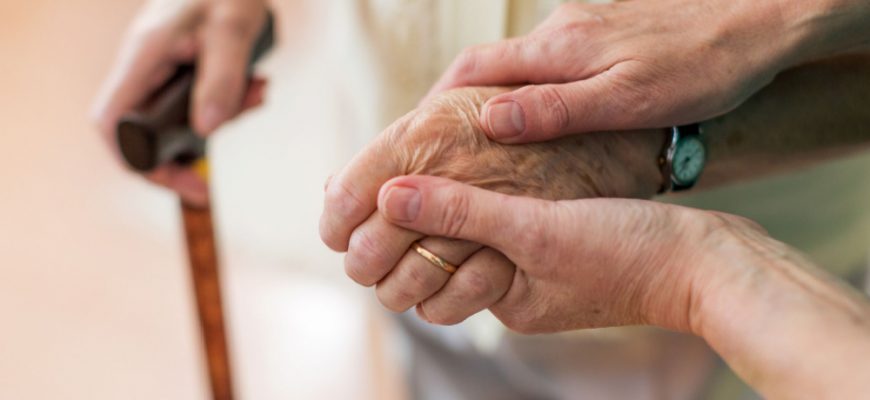Visitation is now fully opened. You no longer need to schedule visits with our residents. Masks are required and you will need to complete a screening before visiting with residents.
Please see attached "Visitor fact sheet."
X
Blog

The Different Stages Of Alzheimer’s Disease
November 23, 2022 0 CommentAlzheimer’s is a progressive disease that develops slowly and gradually worsens. In the opinion of senior care experts, the disease usually develops over a period of many years, impacting memory, language, problem-solving, thinking, and even the personality of the sufferer. Though not every person suffering from Alzheimer’s will experience the same disease progression rate, there is a similar path that patients follow with the progress of the disease. Senior care experts in our assisted living facility share the different stages of dementia progression. Before Diagnosis: No Dementia In the seven-stage model of dementia progression, a person is not considered to have dementia in the first three stages, as the symptoms will be usually associated with that of typical aging and will not be noticeable. Senior care experts also call this pre-clinical Alzheimer’s disease. First Stage: No Impairment In stage one, the person will not have any memory impairment or any evident dementia symptoms. In the first stage of the disease, Alzheimer’s will be undetectable and the stage is sometimes referred to as No Cognitive Decline. Second Stage: Very Mild Cognitive Decline In the second stage, the person will start to experience forgetfulness. They may forget where they left their purse or keys and the symptoms might not be noticed by the healthcare provider or family member of the person. Third Stage: Mild Cognitive Decline The person will experience increased forgetfulness and slight difficulty with concentration. The symptoms at this stage of the disease can lead to reduced work performance for […]
Read MoreUnderstanding The Warning Signs Of TIA And Taking The Necessary Actions
November 17, 2022 0 CommentA transient ischemic attack (TIA) is a variant of stroke. Senior health experts say that TIA is sometimes referred to as mini-stroke as it can lead to stroke-like symptoms. Some transient ischemic attacks can last only a few minutes and some can last for a few hours. Usually, when a person experiences TIA, their stroke symptoms can go away after some time. Types Of Stroke Ischemic and hemorrhagic strokes are two different types of strokes. A hemorrhagic stroke is caused by the bursting of a weak blood vessel in the brain. On the other hand, clots of blood blocking the arteries supplying blood to the brain can lead to an ischemic stroke. TIAs are a type of ischemic stroke. As ischemic strokes and TIAs have similar causes, their symptoms can also be similar. The duration and damage caused are what make a transient ischemic attack different. A TIA can last for a few hours or for a few minutes and usually does not have any lasting effects on the person, whereas an ischemic stroke lasts longer and can lead to permanent damage to the brain of the sufferer. It is very important to understand and recognize the signs and symptoms of a TIA or a stroke on time and take necessary actions. As per senior living experts, a TIA is a serious medical event. If the stroke is a transient ischemic attack and resolves, your loved one may be at an increased risk of a more severe attack. Therefore, if […]
Read MoreActivities For Seniors With Dementia That Kids Can Also Enjoy
November 1, 2022 0 CommentThe love and bonding between a grandparent and a grandchild cannot be substituted with anything. But, dementia disorders can harm the relationship between grandparents and their grandchildren. To avoid this, you can find kids and dementia-friendly activities to ensure that your senior parent and your children have great relationships. Moreover, activities for elderly adults with dementia can also help seniors enjoy a happy and more fulfilling life. It can also be helpful to let kids understand more about dementia and its care so that they will feel less intimidated by the changes in their senior loved one. When your child has a good understanding of dementia disorders, here are some great activities to try. Spend Time In Nature Dementia care experts suggest that spending time in nature can help ease anxiety in people suffering from dementia disorders. Energetic kids also love to spend time outside. So you can help your senior parent and kids enjoy time together outdoors. Some of the activities to try include: Gardening and planting seeds together Birdwatching and drawing pictures or taking photos Chasing butterflies Hiking in a national park or spending time picnicking Build Something Together Kids love building block towers and find happiness in knocking them over. While visiting your senior loved one, you can take some blocks with you and watch your loved one build towers with your kids. Older children may also love the chance to do crafts and arts with a grandparent. Of course, you will need […]
Read More- « Previous Page
- 1
- …
- 5
- 6
- 7
- 8
- 9
- …
- 40
- Next Page »



